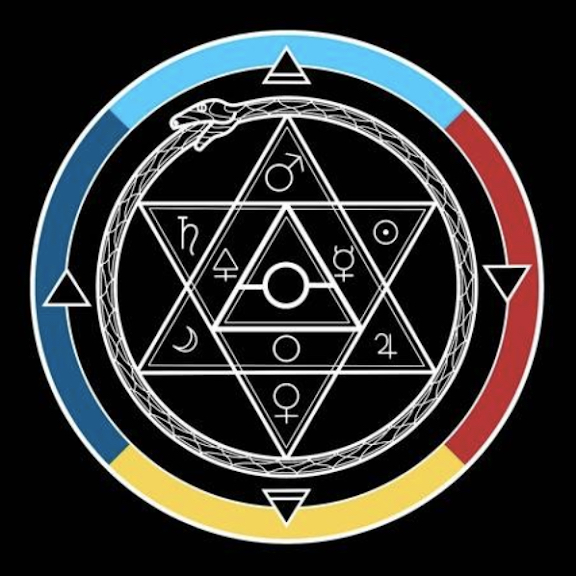Loss of Soul: Difference between revisions
SkyPanther (talk | contribs) (Created page with "The unconscious of man is the abode of the Soul of man and God. If humanity losses touch with the unconscious, they experience a loss of soul, and dwell in consciousness and rationality. This dissociation is pathological and causes all kinds of mental health issues. Depression, Anxiety, Mania, loss of the "Image" of what it means to be human. Loss of connection to gender (as both anima and animus are for most people unconcious).<blockquote>Jesus first appears as a Jewis...") |
SkyPanther (talk | contribs) mNo edit summary |
||
| Line 1: | Line 1: | ||
The unconscious of man is the abode of the Soul of man and God. If humanity losses touch with the unconscious, they experience a loss of soul, and dwell in consciousness and rationality. This dissociation is pathological and causes all kinds of mental health issues. Depression, Anxiety, Mania, loss of the "Image" of what it means to be human. Loss of connection to gender (as both anima and animus are for most people unconcious).<blockquote>Jesus first appears as a Jewish reformer and prophet of an exclusively good God. In so doing he saves the threatened religious continuity, and in this respect he does in fact prove himself a saviour. He preserves mankind from loss of communion with God and from getting lost in mere consciousness and rationality. That would have brought something like a dissociation between consciousness and the unconscious, an unnatural and even pathological condition, a "loss of soul" such as has threatened man from the beginning of time. Again and again and in increasing measure he gets into danger of overlooking the necessary irrationalities of his psyche, and of imagining that he can control everything by will and reason alone, and thus paddle his own canoe. This can be seen most clearly in the great socio-political movements, such as Socialism and Communism: under the former the state suffers, and under the latter, man. | The unconscious of man is the abode of the Soul of man and God. If humanity losses touch with the unconscious, they experience a loss of soul, and dwell in consciousness and rationality. This dissociation is pathological and causes all kinds of mental health issues. Depression, Anxiety, Mania, loss of the "Image" of what it means to be human. Loss of connection to gender (as both anima and animus are for most people unconcious).<blockquote>Jesus first appears as a Jewish reformer and prophet of an exclusively good God. In so doing he saves the threatened religious continuity, and in this respect he does in fact prove himself a saviour. He preserves mankind from loss of communion with God and from getting lost in mere consciousness and rationality. That would have brought something like a dissociation between consciousness and the unconscious, an unnatural and even pathological condition, a "loss of soul" such as has threatened man from the beginning of time. Again and again and in increasing measure he gets into danger of overlooking the necessary irrationalities of his psyche, and of imagining that he can control everything by will and reason alone, and thus paddle his own canoe. This can be seen most clearly in the great socio-political movements, such as Socialism and Communism: under the former the state suffers, and under the latter, man.<br>Answer to Job (Carl Jung) p.67</blockquote> | ||
Answer to Job (Carl Jung) p.67</blockquote> | |||
Revision as of 21:14, 17 August 2022
The unconscious of man is the abode of the Soul of man and God. If humanity losses touch with the unconscious, they experience a loss of soul, and dwell in consciousness and rationality. This dissociation is pathological and causes all kinds of mental health issues. Depression, Anxiety, Mania, loss of the "Image" of what it means to be human. Loss of connection to gender (as both anima and animus are for most people unconcious).
Jesus first appears as a Jewish reformer and prophet of an exclusively good God. In so doing he saves the threatened religious continuity, and in this respect he does in fact prove himself a saviour. He preserves mankind from loss of communion with God and from getting lost in mere consciousness and rationality. That would have brought something like a dissociation between consciousness and the unconscious, an unnatural and even pathological condition, a "loss of soul" such as has threatened man from the beginning of time. Again and again and in increasing measure he gets into danger of overlooking the necessary irrationalities of his psyche, and of imagining that he can control everything by will and reason alone, and thus paddle his own canoe. This can be seen most clearly in the great socio-political movements, such as Socialism and Communism: under the former the state suffers, and under the latter, man.
Answer to Job (Carl Jung) p.67
